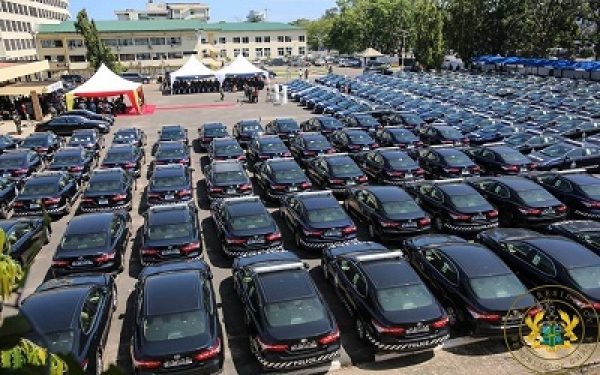200 New cars for Ghana Police
- Posted on
- Comment
 THE Ghana Police Service has received a total of 200 saloon cars to make it more efficient in the discharge of its duties.
THE Ghana Police Service has received a total of 200 saloon cars to make it more efficient in the discharge of its duties.The President earlier in the year promised to provide the Service with the needed equipment and logistics to enable it discharge its duty effectively.
The President assured that his government would spare no effort to strengthen and fashion the Force into a honest, disciplined, efficient, robust and proactive Service.
“Government will continue to mobilize whatever assistance it can to enable the Police give the people the kind of service they deserve,” he stressed, adding that the most essential thing for the nation was the assurance of the safety of the people and the security of the nation.
“It is when these are guaranteed that citizens can go about their lives in security and try to improve upon the quality of their circumstances.
“It is, therefore, vital for the Executive to offer its full support to the Police to allow the maintenance of law and order,” he stated.
President Akufo-Addo told the gathering that government had also committed resources to procure kits, gear and quantities of other essential equipment, as well as more vehicles for the Police.
He urged personnel of the Service to pay attention to the proper maintenance of the vehicles and “use them to serve and protect the Ghanaian people”.
The President further asked Ghanaians to lend support to the work of police, saying, ” when the citizenry and Police work together, we can be assured of our safety and security, and channel our energies into building a progressive and prosperous nation”.
Mr James Oppong-Boanuh, Deputy Inspector-General, was confident the vehicles would improve tremendously the operational capability and effectiveness of the service.
He assured that the service would put the vehicles to their intended use and also adopt a regular maintenance culture to ensure that the vehicle are fit for purpose at all times.










 (Selorm) |
(Selorm) |  (Nana Kwesi)
(Nana Kwesi)